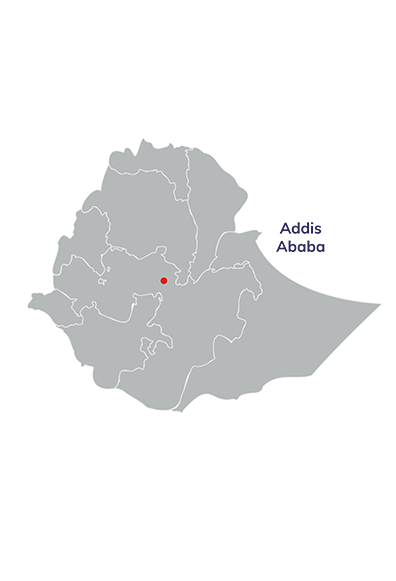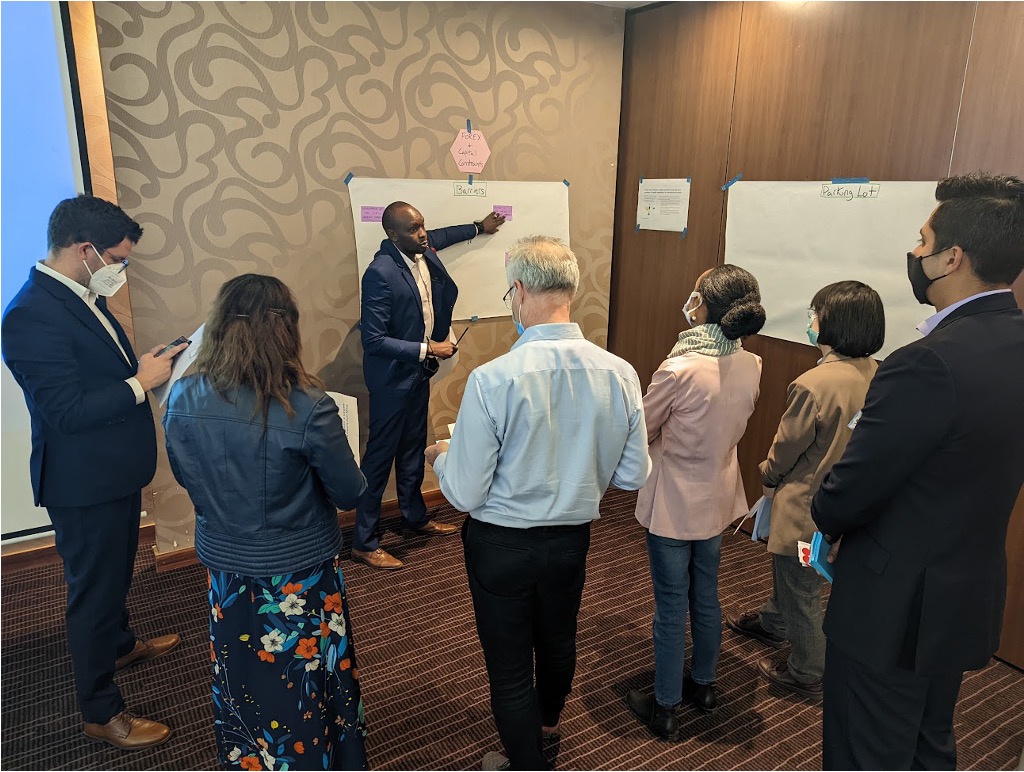Countries:
Ethiopia
Status:
Completed
Sector:
Energy
Improving energy access in Ethiopia by de-risking clean energy minigrids for commercial investment through innovative business models, increased cooperation, and enhanced stakeholder capacity.
The Ethiopia National Electrification Program (NEP) 2.0 highlights clean minigrids as solutions for short- and mid-term pre-electrification in peri-urban and rural areas. However, the plan fails to provide compelling business models that would enable their scale-up using private capital. To date, the few existing pre-electrification minigrids are mostly public and diesel-run, and the Ethiopian Electric Utility (EEU) operates 31 diesel minigrids in rural areas. Additionally, the national grid in Ethiopia is unreliable and just under half of the country’s population lack access to electricity.
In this context, this project identified an opportunity to deploy clean minigrids to meet Ethiopia’s electrification goals and strengthen the main grid once interconnected. The overall outcome of the project was to unlock the pre-electrification segment in Ethiopia by developing investible business models suitable for interconnected minigrids. To achieve this, the project focused on de-risking investment in a large cohort of clean energy minigrids and demonstrating scalable and sustainable business models to support the deployment of 1,000+ minigrids across Ethiopia.
In particular, the project designed commercial business models for transitional minigrids (pre-electrification), provided guidelines and recommendations for future interconnections, provided training to minigrid project developers, and ensured wide dissemination of the findings amongst key stakeholders. UK PACT’s support to private minigrids has filled a capacity gap and helped to ensure momentum for the sector in the context of a green recovery.
The project was delivered by RMI in partnership with the Carbon Trust.
“It was great to discuss and better understand the proposed business models to scale-up private sector involvement in pre-electrification minigrids in Ethiopia under this UK PACT initiative. I was especially impressed by the collaborative approach, the diversity of participants and the suggestions Ethiopian stakeholders shared to address access to finance/capital constraints; an indication of genuine interest in advancing these models.”
Zeph Kivungi
Country Delivery, Global Energy Alliance for People and Planet
“The remote training delivered by RMI was comprehensive, insightful, led by an inspiring tutor! I appreciated the session on minigrids technical design: it comes very timely as Green Scene is installing its first minigrids, supported by a major development partner in Ethiopia. It will help us capture more accurately community energy needs during the course of minigrid project management.”
Biniam Tufa Alemu
Engineering Manager,
Green Scene Energy

The project recommended commercial business models for transitional minigrids to promote private sector investments
developed by the project to clarify the technical standards and requirements for minigrids
attended by over a dozen local developers and covered project management, financial modelling, investor criteria, and technical preparation
attended by over 40 key stakeholders, discussing and testing the insights and recommendations from the project
By developing investible business models suitable for private investments into interconnected minigrids, this project helped to lay the foundation for the rapid growth of the pre-electrification segment in Ethiopia.
Key project outputs to achieve this included:
with extensive experience in Ethiopia into the project team
All stakeholders were consulted on GESI issues, exploring how women and marginalised groups could be included
Women’s potential energy needs were identified at the 12 minigrid sites, such as energy use for clean cooking, and agricultural value chains
A GESI module was included in the virtual training for private developers, covering employment and skills, customer engagement, and gender-based violence
Ethiopia faces a high level of poverty (24%) and persistent gender disparities, with literacy rates for women just below 50%. Additionally, in urban areas, electricity access reached 97%, while in poorer rural areas only 44% of households were electrified. Improving energy access has the potential to benefit marginalised groups through the use of electric appliances for cooking, access to information, electrification of health facilities, plus more.
In this context, the project had a strong focus on improving energy access for marginalised groups. Key GESI actions and outputs included:
The project identified an opportunity for the private minigrid sector to gather data that could help evaluate gender impacts of minigrid developments, such as clean cooking data and the electrification of agricultural value chains. Further opportunities could also be sized from the design of the tendering processes for minigrid projects to actively encourage the participation of female developers.

The recent impact of covid-19 and security challenges in Ethiopia have slowed progress in the private minigrid sector in the country. However, there remains an enormous, untapped market opportunity that could support a green recovery.
Modelling work has highlighted up to 530t CO2 annual emissions reduction per minigrid, while serving community needs through productive use of renewable energy. The recommendations identified by the project team, like other interventions in the energy sector, require an improved security situation for implementation.
Key recommendations include:
Lorem ipsum dolor sit amet, consectetur adipiscing elit ut aliquam, purus sit amet luctus venenatis. Vel fringilla est ullamcorper eget nulla facilisi etiam dignissim diam quis enim lobortis scelerisque.
UK PACT (Partnering for Accelerated Climate Transitions) is a unique capacity-building programme. Jointly governed and funded by the UK Government’s Foreign, Commonwealth and Development Office (FCDO) and the Department for Energy Security and Net Zero (DESNZ) through the UK's International Climate Finance, it works in partnership with countries with high emissions reduction potential to support them to implement and increase their ambitions for tackling climate change.
© Copyright 2025 UK PACT Privacy Notice Cookie Policy